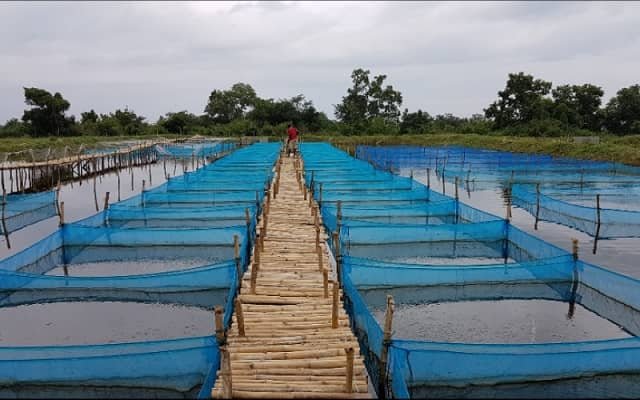Part of EU’s blue economy, offshore aquaculture is a promising sector, fostering economic opportunity, employment and food security. In offshore mussels farms, mussels are grown on long ropes, suspended underwater. However, the ropes used in aquaculture are made from plastic, threatening marine ecosystems, if discarded or not disposed of correctly.
At the same time, as the aquaculture sector experience increasing demand, more ropes are needed. To solve this conundrum, the EU-funded BIOGEARS project aims to provide the aquaculture sector with innovative bio-based ropes that contribute to a more sustainable aquaculture sector.
Launched in 2019, the BIOGEARS consortium develops prototypes of bio-based ropes for use in mussel and seaweed culture. BIOGEARS builds on knowledge generated by previous projects. Also partly EU-financed, these have been instrumental in understanding both the volume and type of marine litter generated by aquaculture and their impact on the marine environment, and the growth, production yield and quality of mussels, when cultured on conventional plastic ropes.
Aiming to replace or complement oil-based plastics, the consortium has produced compostable plastics from natural components derived from renewable biomass. The goal is to obtain a plastic that does not decompose at sea, but instead turns into compost, when it is no longer of use. The bio-based ropes developed by BIOGEARS are tested at sea, under different environmental conditions. Technical, environmental and economic sustainability assessment of the bio-gears is carried out, including its degradability at sea and the composting conditions.
“From the first industrial prototyping trials, we now know that it is possible to manufacture bio-gears as an innovative solution for an eco-friendly offshore aquaculture sector in Europe. It is exciting to see that we are making the change possible,” says Leire Arantzamendi, the Project coordinator.
The project is engaging with the entire value chain and key stakeholders, from the aquaculture industry and producers of materials to regulatory authorities, policy makers, research institutions and consumers. Beyond this project, the bio-based ropes can be adapted for other aquaculture and fisheries needs, contributing more widely to the sustainable transformation of the sector.
BIOGEARS has three main objectives: a positive impact on sustainability of the aquaculture industry by developing more eco-friendly ropes and aquaculture systems; a positive economic impact by supporting a circular economy, through the development of new bio-based products and value chains; a societal impact by supporting public policies to reduce plastic littering at sea, by fostering new employment, quality products and responsible production and consumption.
The EU-funded BIOGEARS projects is in line with the vision for a sustainable blue economy under the European Green Deal and contributes to European policies on plastics and microplastics. It also underpins other key policies such as those set out in the EU’s Bioeconomy Strategy and the European Farm to Fork Strategy.
Stay Always Informed
Join our communities to instantly receive the most important news, reports, and analysis from the aquaculture industry.
Did you like this story?
Read more about the EU’s efforts to promote a sustainable and productive aquaculture sector as part of a thriving blue economy: Aquaculture guidelines.
Keep informed about the project
Website: https://www.biogears.eu/
Social media:
Twitter: @BIOGEARS_EU
LinkedIn: https://www.linkedin.com/company/biogears
Fuente: CORDIS
Editor at the digital magazine AquaHoy. He holds a degree in Aquaculture Biology from the National University of Santa (UNS) and a Master’s degree in Science and Innovation Management from the Polytechnic University of Valencia, with postgraduate diplomas in Business Innovation and Innovation Management. He possesses extensive experience in the aquaculture and fisheries sector, having led the Fisheries Innovation Unit of the National Program for Innovation in Fisheries and Aquaculture (PNIPA). He has served as a senior consultant in technology watch, an innovation project formulator and advisor, and a lecturer at UNS. He is a member of the Peruvian College of Biologists and was recognized by the World Aquaculture Society (WAS) in 2016 for his contribution to aquaculture.


